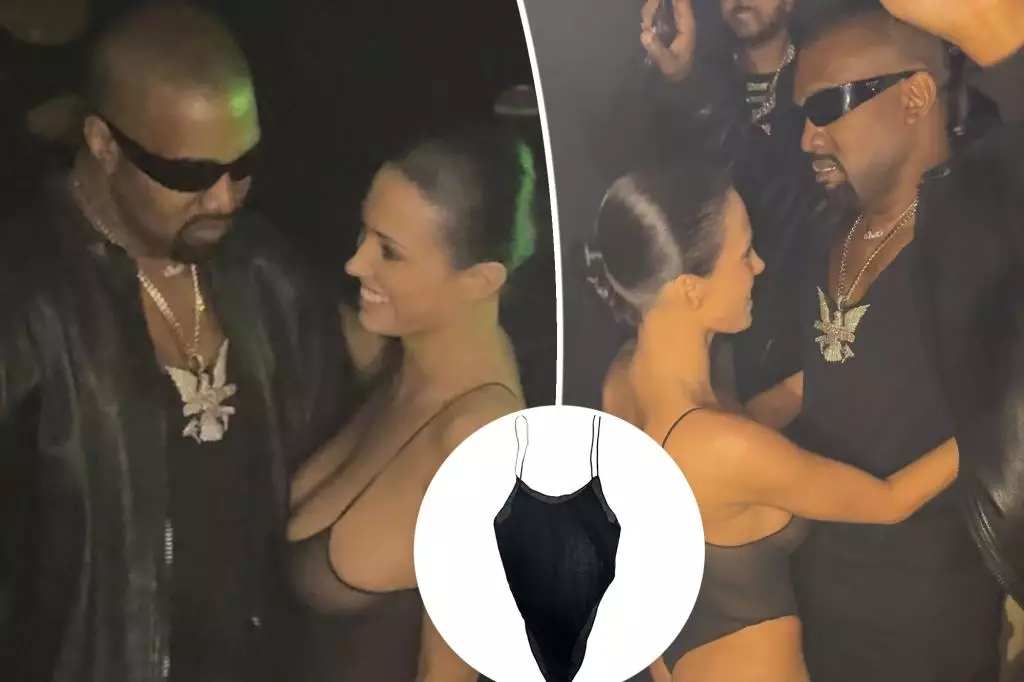Kanye West, who now legally goes by Ye, has always been a polarizing figure in the worlds of music and fashion. His ventures are often characterized by his bold and unconventional ideas, but they also bring significant public scrutiny. Recently, his Yzy line has taken center stage due to its affordability and a deliberate push against corporate practices in the fashion industry, highlighting the dichotomy between high fashion and accessible apparel. This article explores the implications of Ye’s latest release, the sheer bodysuit, and how it both showcases fashion innovation and incites controversy.
Kanye West’s latest release, a sheer bodysuit priced at an astonishingly low $20, represents a paradigm shift in luxury fashion. Traditionally, high-end clothing has been associated with exorbitant prices, making it accessible primarily to the wealthy. However, through his Yzy brand, Ye has set an accessible standard that challenges conventional fashion narratives. After teasing the bodysuit last month, his wife, Bianca Censori, made headlines by featuring the garment on the red carpet at the 2025 Grammys afterparty. The choice to don this audacious look exemplifies a calculated marketing strategy that utilizes celebrity influence to drive consumer interest.
Ye’s vision for Yzy is not only rooted in affordability but also in authenticity. Unlike his previous collaborations with Adidas, which faced backlash and ultimately dissolution due to controversial statements, Ye aims to reclaim his narrative while calling out corporate exploitation. His clarion call, “No corporations leveraging my platform,” sheds light on the exploitation often faced by artists and designers. He is positioning Yzy as a brand that prioritizes the consumer experience over corporate greed, aiming to unite his community through fashion that doesn’t break the bank.
The couple’s attention-grabbing moments, particularly their Grammys red carpet appearance, reveal Ye’s understanding of the media’s fascination with controversy. Dressed in a completely sheer minidress, Censori effortlessly drew both astonishment and criticism. Their calculated actions have raised eyebrows while simultaneously promoting Yzy. While many condemned the outfit as inappropriate for the prestigious venue, a source close to the couple noted that they thrive off of reactions, regardless of whether they are positive or negative.
This instance supports the notion that publicity is publicity, and in today’s digital age, even negative press can lead to heightened visibility. The release of the bodysuit coincides with the buzz generated by their red carpet appearance, showcasing Ye’s prowess in manipulating media narratives to draw consumer attention to his brand. The concept of “bad publicity” has morphed into a potent marketing tool in the contemporary fashion landscape.
At its core, Ye’s approach to fashion under Yzy reflects a broader cultural dialogue about identity and self-expression. The sheer bodysuit that Censori wore is emblematic of a growing trend where fashion serves as a canvas for personal narratives and societal commentary. By embracing garments that challenge conventional modesty, Ye and Censori advocate for a diversification of fashion norms, pushing boundaries while encouraging individuals to express themselves authentically.
Contrasting this with traditional fashion houses, which often lean toward exclusivity and elitism, Ye’s Yzy intends to democratize fashion. By offering trendy apparel at a fraction of typical prices, Ye aims to remove barriers to entry in fashion, empowering consumers to experiment with their styles without the constraints of exorbitant costs.
As Kanye West forges ahead with his Yzy brand, he is continually redefining what it means to be a fashion icon in the 21st century. Through his unyielding commitment to affordability, alongside calculated provocations, he navigates the fine line between controversy and admiration. The sheer bodysuit and the spectacle surrounding it challenge not only our perceptions of fashion but also prompt a reconsideration of who controls the narratives in this industry.
Ultimately, Yzy’s mission appears to be twofold: disrupt the high-fashion status quo and offer a platform for self-expression that resonates with audiences across socio-economic spectrums. As the fashion landscape continues to evolve, it will be intriguing to see how Ye’s vision transforms consumer behavior and the overarching narrative of the fashion world itself.

